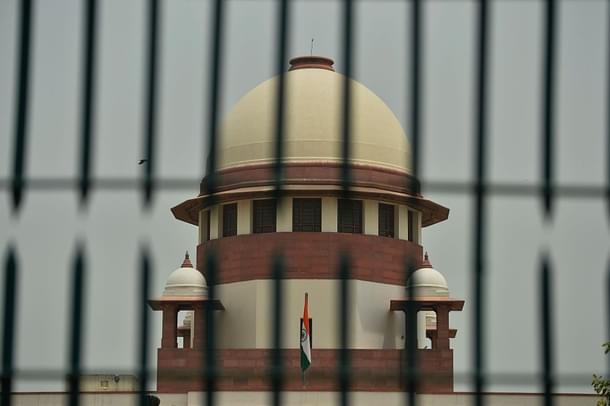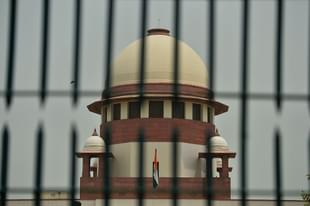News Brief
"Enough Is Enough": CJI Khanna Limits Petitions On Places Of Worship Act, Supreme Court Sets Hearing for April
Nishtha Anushree
Feb 17, 2025, 06:04 PM | Updated 06:04 PM IST
Save & read from anywhere!
Bookmark stories for easy access on any device or the Swarajya app.


Chief Justice of India (CJI) Sanjiv Khanna has voiced his frustration over the influx of new petitions related to the Places of Worship Act 1991. This act prevents lawsuits that aim to reclaim or alter the nature of a place of worship.
"Enough is enough. There has to be an end to this," he was quoted as saying by NDTV emphatically during a recent hearing. He also made it clear that the Supreme Court will not entertain any new petitions concerning this issue.
Despite declining to issue notice on the newly submitted petitions, the court has permitted the submission of an intervention petition, supplemented with additional reasons.
As the Supreme Court proceeded with its examination of the petitions concerning the legitimacy of the Places of Worship Act, it made stringent comments. This Act has gained importance due to the ongoing legal attempts to recover destroyed Hindu temples.
In 1991, legislation was enacted to prohibit alterations to the religious nature of a worship site as it was on 15 August 1947. The dispute over Ram Janmabhoomi was not included within its scope.
Ashwini Kumar Upadhyay initially lodged the petition questioning the legality of the law. However, last year, the court suspended proceedings for 18 lawsuits brought by Hindu parties aiming to regain ownership of 10 mosques and grouped all issues pertaining to temple-mosque disputes. This encompasses the controversies surrounding Shahi Idgah-Krishna Janmabhoomi, Kashi Vishwanath-Gyanvapi mosque, and Sambhal mosque.
The decision led to numerous opposition parties rushing to the supreme court in support of the law, even as it faced opposition from Hindu groups and right-wing organisations.
The Congress, holding power at the time of the law's enactment, along with Asaduddin Owaisi's AIMIM, are the most recent political parties to petition the Supreme Court for rigorous enforcement of the law. Additionally, another petitioner who presented their case on Monday urged the court to maintain the law, emphasising the universal right to peaceful living.
The CJI stated during the hearing that the court had allowed the filing of new petitions last time, but such interventions would be limited now. "Application for fresh interventions will be allowed given it raised some ground which is not raised as yet," CJI Khanna stated.
Vikas Singh, a senior advocate who is representing the petitioners, has also highlighted that they are still awaiting a response from the Centre. The hearing has been postponed until the first week of April.
Nishtha Anushree is Senior Sub-editor at Swarajya. She tweets at @nishthaanushree.





